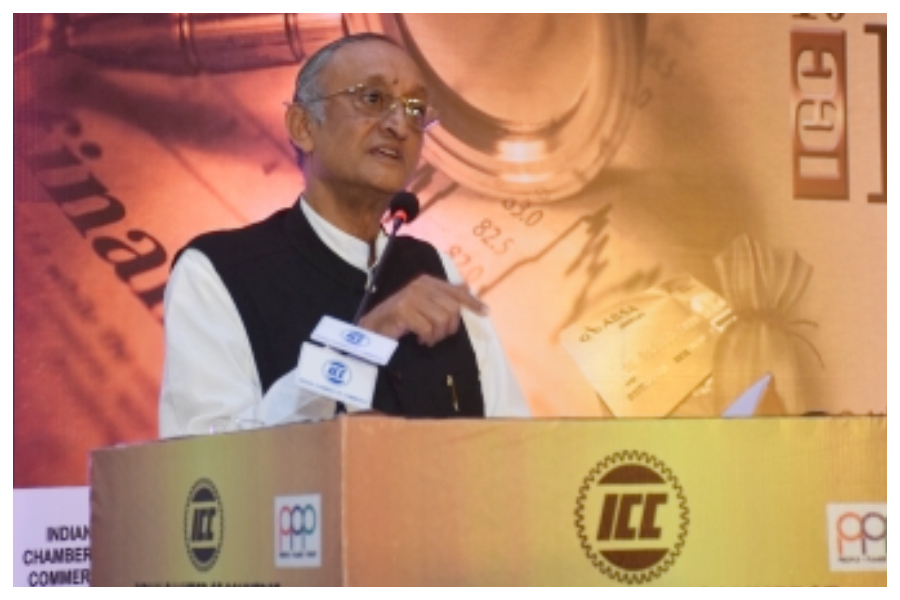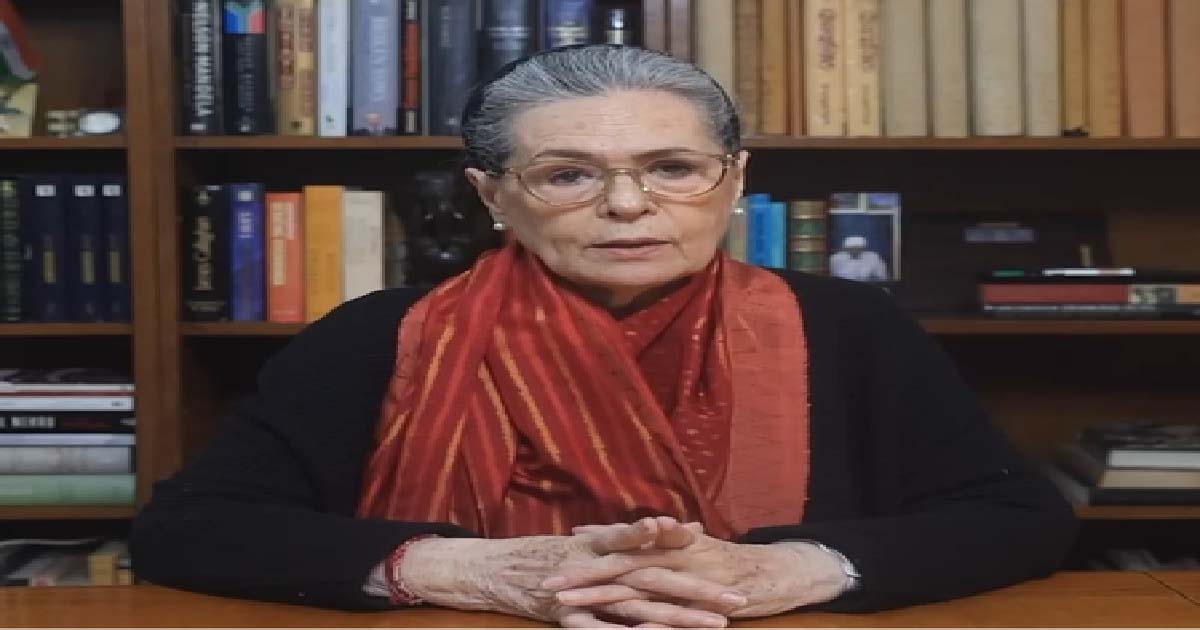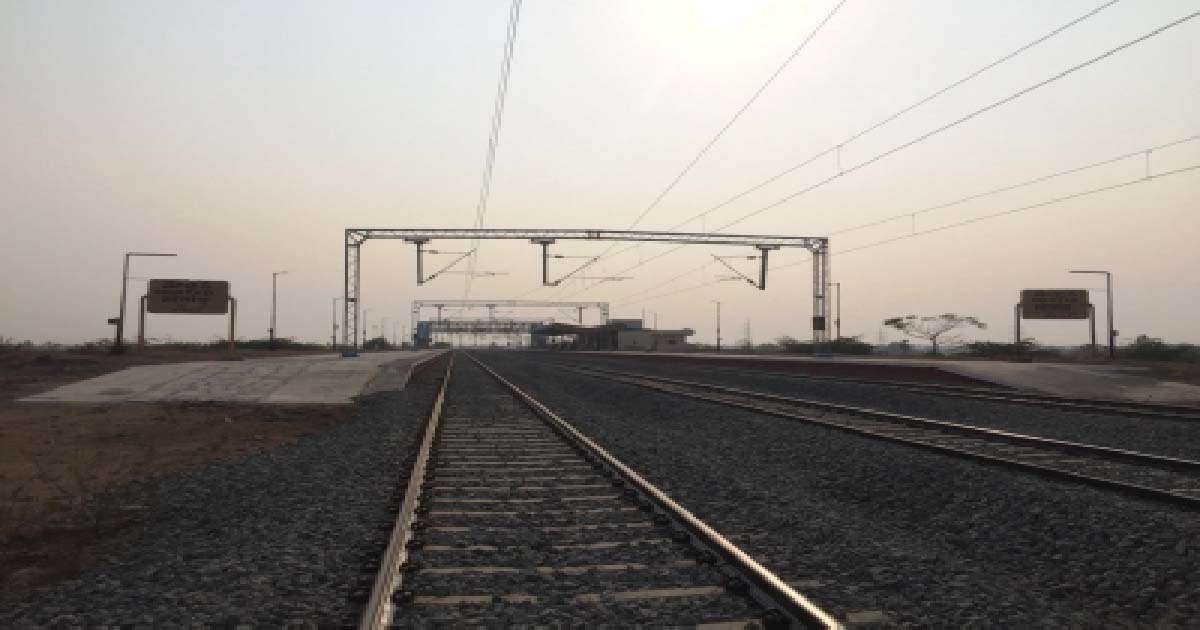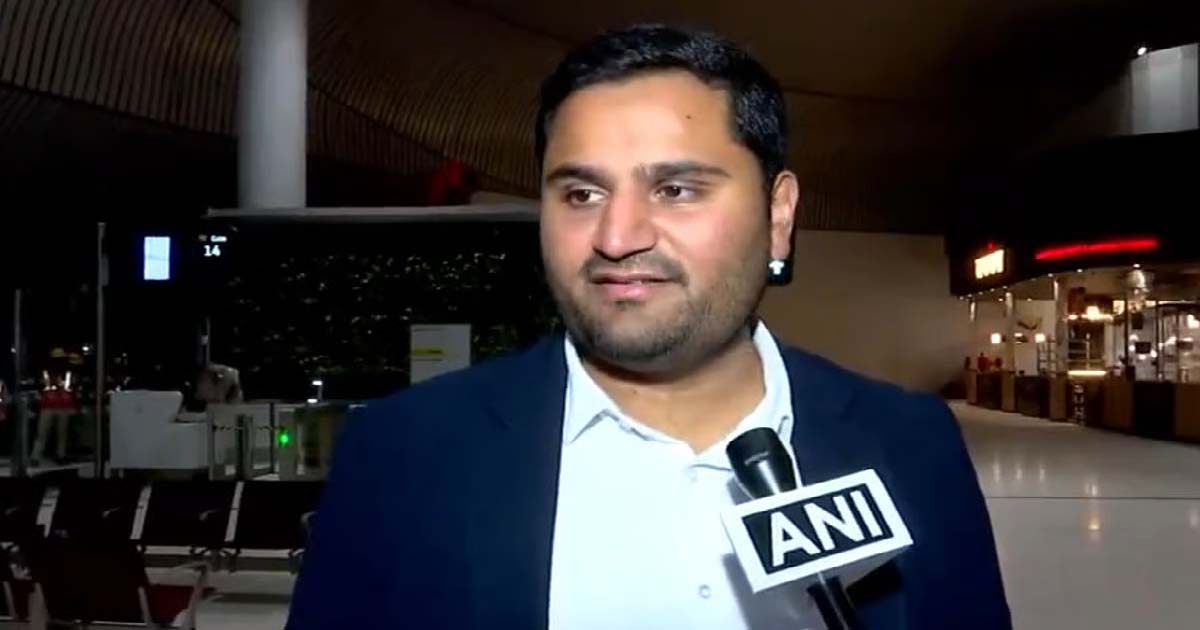National News
How West Bengal put brakes on growing fiscal deficit

With only a few days to go before the state budget, it would be interesting to watch how state financial advisor Amit Mitra put brakes on the growing fiscal deficit in the state.
Experts are of the opinion that the state financial condition was showing signs of recovery despite the outstanding liabilities but the financial burden caused by the social schemes announced by the state is having a negative impact on the financial health of the state.
The revenue deficit has been pegged at Rs 26,755.25 crore which is more than three per cent of the Gross State Domestic Product (GSDP) limit. Going by the past trend, the figure is likely to increase further. The fiscal deficit shot up from Rs 52,350.01 crore in 2020-21 to Rs 60,863.96 crore in 2021-22. The upswing in deficit is expected, considering that both the state’s tax and non-tax revenues have plummeted during the pandemic.
The state’s own tax revenue dropped from Rs 60,669.37 crore in 2019-20 to Rs 59,886.59 crore in 2020-21 and its share in central taxes plunged from Rs 48,048.40 crore to Rs 44,737.01 crore during the same period. The period also witnessed a fall in non-tax revenue from Rs 3,212.90 crore to Rs 2,466.31 crore.
Given the pandemic-induced fall, the budget estimate of Rs 50,070.29 crore as state’s share in central taxes, Rs 75,415.74 crore as its own tax revenue and Rs 4,611.72 as its non-tax revenue, appear unrealistic, which means the current fiscal may end with a higher revenue deficit as well as an increased fiscal deficit.
With an estimated fiscal deficit of 4.03 per cent of its GSDP, West Bengal is among those few states that have crossed the three per cent threshold limit. In 2020-21, the percentage was 3.86 as against 2.94 per cent in 2019-20. Not only that, the GSDP growth rate at 2011-12 constant prices went up from 4.17 per cent in 2012-13 to 6.13 per cent in 2015-16, 7.2 per cent in 2016-17, and 6.41 per cent in 2018-19 but again plunged to 5.6 per cent in 20-21. However, it still consistently remained below the national average.
Interestingly enough, Bengal’s debt-GSDP ratio stood at its peak in 2010-11 at 41.9 per cent, according to a NITI Aayog-sponsored survey conducted by IIM Calcutta. This was the highest in the country. Since then, the ratio has gradually come down and stood at 34.75 per cent in 2018-19 but in the 2020-21 financial year it again shot upto 38.8 per cent indicating the pressure on the economy of the state.
A comparative study shows that the states with the highest debt-GSDP ratio in FY22 are Punjab (53.3 per cent), Rajasthan (39.8 per cent), West Bengal (38.8 per cent), Kerala (38.3 per cent) and Andhra Pradesh (37.6 per cent). All these states receive revenue deficit grants from the Centre.
Former chief economic advisor to the central government and BJP MLA Ashoke Lahiri said: “What is worrying us more is a constant increase in the primary deficit (fiscal deficit minus interest payment). Figures from RBI show that GSDP to primary deficit was 0.4 per cent in 2019-20. In a year that shot up to 1.4 per cent and in 2021-22 that is 1.9 per cent. This points to the fact that even if the interest burden is removed, the state continues to borrow more”.
The precarious financial condition of the state was evident from the sudden increase in market borrowing. The market borrowing of West Bengal so far in the fiscal year 2022 is 20 per cent higher on a year-on-year basis, according to a report by the CARE Ratings. Only Nagaland, up by 71 per cent, had a higher borrowing during the period than West Bengal.
Haryana (by 11 per cent), Sikkim (by 7 per cent), Jammu and Kashmir and Maharashtra (by 4 per cent each) and Rajasthan (by 3 per cent) are the few other states that have higher borrowings so far in the current fiscal than the comparable period of a year ago. In the case of other remaining states, it is lower than last year.
According to the statement issued by the Reserve Bank of India, the state is likely to borrow 12 times raising around Rs 20,000 crore from the market between the period of January 1 and March 31 making it obvious that the state government is struggling hard to negotiate the expenses caused by the social schemes launched by Chief Minister Mamata Banerjee.
Interestingly enough, in the period between April 2020 and December 2020 when the state revenue plummeted to all time low because of the pandemic situation and the consequent lockdown, the state raised around Rs 35,000 crore from the market but during the current financial year between April 2021 to December 2021, it went for a market borrowing of Rs 52,500 crore. During the same period in 2019, the state borrowed Rs 28,000 crore via State Development Loan.
Incidentally, when the 34-year rule of the Left Front came to an end in 2011 and Mamata Banerjee became the chief minister, the accumulated debt of the state was Rs 1.93 lakh crore. But, according to the state government’s budget figures, the accumulated debt is likely to go upto Rs 5.5 lakh crore by the end of the 2020-21 financial year.
The state government’s dying effort to negotiate the huge cost of non-planned expenditure came to the fore when recently chief minister Mamata Banerjee directed all the departments to cut down on unnecessary expenditure beyond the approved budget and not to take any new project without the approval of the state Chief Secretary or the finance department. The announcement was an obvious indication that the government is trying to negotiate the financial burden caused by the non-planned expenditure of the dole politics announced by the chief minister Mamata Banerjee before the election.
After coming to power for the third time- Chief Minister Mamata Banerjee announced two major schemes – ‘Lakshmir Bhandar’ and ‘Swastha Sathi’ for all – the schemes that demand a huge financial involvement. ‘Lakhmir Bhandar’ is a project where the state is supposed to give Rs 1,000 to the women belonging to SC/ST/OBC and Rs 500 to the women belonging to General caste. The government has allocated a budget of approximately budget of Rs 12,900 crore for around 1.8 crore women who have so far registered themselves for the scheme.
Initially the government had an estimate that nearly 2 crore beneficiaries will register for ‘Lakshmir Bhandar’ project but so far, the government has received an application of 1.63 crore of which 1.52 crore has been approved. Nearly 7 lakh applications have been cancelled. The government has spent more than Rs 800 crore for the project and going by the figure the finance department estimates that the state government will have to cough up another Rs 5,600 crore which might in turn lead to a staggering figure in a full financial year.
Countering the Centre’s Ayushman Bharat, the state launched its own scheme – ‘Sasthya Sathi Prokolpo’ where some citizens of the state were given an annual health coverage of five lakh rupees. After coming to power in 2021, the chief minister opened ‘Swastha Sathi’ for all the citizens of the state leading to a quantum leap in the expenditure. Even a year back when the estimated budget for this project was around Rs 925 crore, this year the allocation touched an astronomical figure of Rs 2,000 crore annually.
According to experts, with the decline of the revenue generation, multiple market borrowings have now become the essential compulsion of the West Bengal government now to meet its recurring expenses.
They are of the opinion that the state is struggling with the non-plan expenditure mostly to meet the promises made by Chief Minister Mamata Banerjee during her election campaign.
National News
‘Bulldozer on MGNREGA’: Sonia Gandhi attacks Modi govt over G RAM G Bill

New Delhi, Dec 20: Congress Parliamentary Party (CPP) chairperson Sonia Gandhi on Saturday mounted a sharp attack on the PM Narendra Modi-led government, accusing it of systematically running a “bulldozer” over the Mahatma Gandhi National Rural Employment Guarantee Act (MGNREGA) and undermining the rights of rural poor, farmers and landless workers, terming it an “assault on rural livelihoods”.
This comes two days after the Parliament passed the VB-G RAM G Bill 2025, which escalated into a major political slugfest between the government and the opposition.
In a video message shared by the Congress on X, Gandhi recalled the passage of the landmark employment guarantee law nearly two decades ago during the tenure of former Prime Minister Dr Manmohan Singh.
She said MGNREGA was passed with broad consensus in Parliament and proved to be a “revolutionary step” that provided livelihood security to crores of rural families, particularly the most deprived and marginalised.
“The law stopped distress migration by ensuring employment in one’s own village, strengthened gram panchayats and gave a legal right to work,” Gandhi said, adding that the scheme embodied Mahatma Gandhi’s vision of Gram Swaraj.
She noted that MGNREGA acted as a lifeline for the poor during the COVID-19 pandemic.
However, the Congress leader alleged that over the past 11 years, the Modi government had made repeated attempts to dilute the scheme by ignoring the interests of the rural unemployed and poor.
She expressed “deep anguish” over what she described as recent unilateral changes to the programme.
“Without consultation, discussion or taking the opposition into confidence, the government has altered the very structure of MGNREGA. Even Mahatma Gandhi’s name has been removed,” Sonia Gandhi claimed.
She warned that decisions on who gets work, how much employment is provided and where it is offered are now being taken “from Delhi, far removed from ground realities”.
Emphasising that MGNREGA was never a party-specific initiative, Gandhi said the Congress may have played a key role in bringing the law, but it was always meant to serve national and public interest.
“By weakening this law, the government has attacked the rights of crores of farmers, labourers and landless rural poor,” she said.
Gandhi asserted that the Congress was fully prepared to resist what she termed an assault on rural livelihoods. “I fought for the employment guarantee law 20 years ago, and I remain committed to fighting this ‘black law’ today,” she said, adding that Congress leaders and workers stood firmly with the people.
Business
38 Railways projects worth Rs 89,780 crore sanctioned in Maharashtra: Centre

New Delhi, Dec 20: A total of 38 railway projects (11 new lines, 2 gauge conversion and 25 doubling) of a total length of 5,098 kms and costing Rs 89,780 crore have been sanctioned in Maharashtra (as on April 1, 2025), the government said on Saturday.
During the last three fiscals — 2022-23, 2023-24, 2024-25 and the current financial year 2025-26 — 98 surveys (29 New Line, 2 Gauge Conversion and 67 Doubling) of total length 8,603 km falling fully/partly in the state of Maharashtra, have been sanctioned, it said.
“Further, construction works on the flagship High-Speed Bullet Train project have gathered momentum in Maharashtra. Now 100 per cent of land acquisition has been completed. Works on bridges, aqueducts, etc. have been taken up,” the Railways Ministry said in a statement.
In addition, platform extension work at 34 stations to accommodate 15-car EMUs has been taken up.
To improve the capacity of the rail network in the Mumbai suburban area, the Mumbai Urban Transport Project (MUTP)-II costing Rs 8,087 crore, MUTP-III costing Rs 10,947 crore, and MUTP-IIIA costing Rs 33,690 crore have been sanctioned.
To enhance passenger carrying capacity, 238 rakes of 12 cars each with doors have been sanctioned under MUTP-III and IIIA at a cost of Rs 19,293 crore. The process for the procurement of these rakes has been taken up.
With Western DFC also passing through Maharashtra, as about 178 route km of it or about 12 per cent of the overall route length, falling in the state, the ministry said that “about 76 km of this project from New Gholvad to New Vaitarna in Maharashtra has already been commissioned. Balance works have been taken up. Connectivity of WDFC to JNPT will boost the capacity to handle cargo and container traffic from the port to Delhi NCR”.
Presently, about 120 originating Mail/Express trains and about 3,200 suburban trains are handled daily in the Mumbai area.
National News
‘We Will Be Adding 3 More Terminals’: Jeet Adani On Navi Mumbai Airport

Mumbai: As Navi Mumbai International Airport (NMIA) is set to begin commercial operations, Jeet Adani, the Director at Adani Airports Holdings Limited, on Friday shared the upcoming plans in terms of adding more terminals, runways and connectivity modes.
Speaking to Media, Jeet Adani said, “We’ll have the first terminal operational. The terminal has a capacity of about 20 million passengers, and the first southern runway is going to be operational. As we grow in terms of traffic, we will be adding three more terminals, another runway, cross-field taxiways, metro connectivity, two kinds of metro connectivity, one towards Mumbai, one towards Panvel, water taxi and helipad.”
“So every form of transportation will be connected as a true multi-modal hub should be. This will keep going on for the next 15 years. So we see between 2038-2040, that time period is where we’ll see the entire Navi Mumbai fully built out,” he added.
Prime Minister Narendra Modi on October 8 inaugurated the Navi Mumbai International Airport (NMIA), one of India’s most ambitious infrastructure projects and a defining milestone in the nation’s aviation journey.
Speaking on the occasion, the Prime Minister said that Mumbai’s long wait was over as the city had now received its second international airport. He added that the Navi Mumbai International Airport would play a major role in establishing the region as Asia’s biggest connectivity hub.
NMIA has been developed as a public-private partnership (PPP) between Mumbai International Airport Limited (MIAL), a subsidiary of Adani Airport Holdings Limited (AAHL), and the City and Industrial Development Corporation (CIDCO).
The project represents a major stride in India’s infrastructure-building vision, reflecting the Government’s agenda of Viksit Bharat 2047.
-

 Crime3 years ago
Crime3 years agoClass 10 student jumps to death in Jaipur
-

 Maharashtra1 year ago
Maharashtra1 year agoMumbai Local Train Update: Central Railway’s New Timetable Comes Into Effect; Check Full List Of Revised Timings & Stations
-

 Maharashtra1 year ago
Maharashtra1 year agoMumbai To Go Toll-Free Tonight! Maharashtra Govt Announces Complete Toll Waiver For Light Motor Vehicles At All 5 Entry Points Of City
-

 Maharashtra1 year ago
Maharashtra1 year agoFalse photo of Imtiaz Jaleel’s rally, exposing the fooling conspiracy
-

 National News1 year ago
National News1 year agoMinistry of Railways rolls out Special Drive 4.0 with focus on digitisation, cleanliness, inclusiveness and grievance redressal
-

 Maharashtra1 year ago
Maharashtra1 year agoMaharashtra Elections 2024: Mumbai Metro & BEST Services Extended Till Midnight On Voting Day
-

 National News1 year ago
National News1 year agoJ&K: 4 Jawans Killed, 28 Injured After Bus Carrying BSF Personnel For Poll Duty Falls Into Gorge In Budgam; Terrifying Visuals Surface
-

 Crime1 year ago
Crime1 year agoBaba Siddique Murder: Mumbai Police Unable To Get Lawrence Bishnoi Custody Due To Home Ministry Order, Says Report












